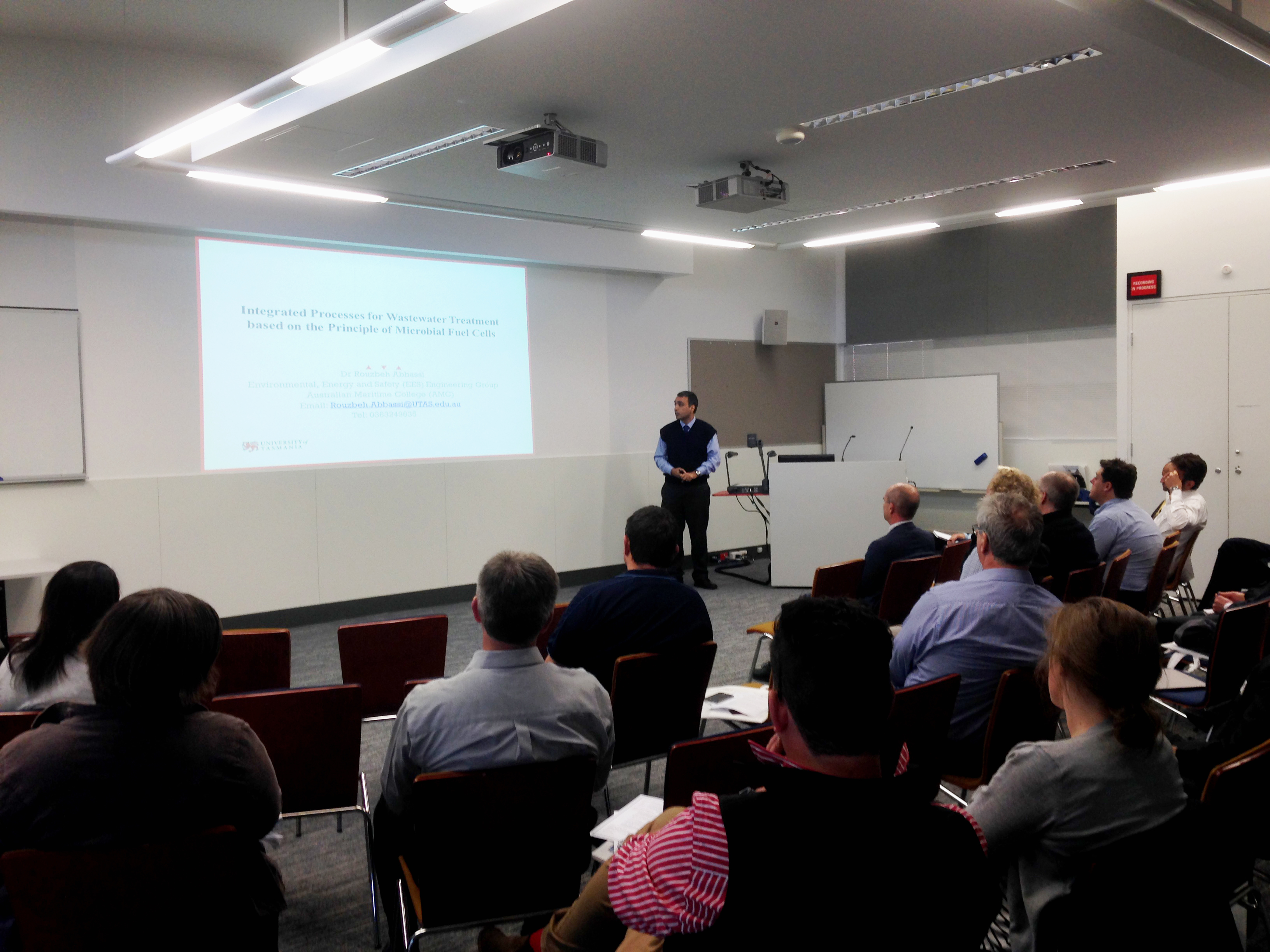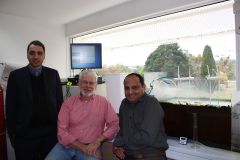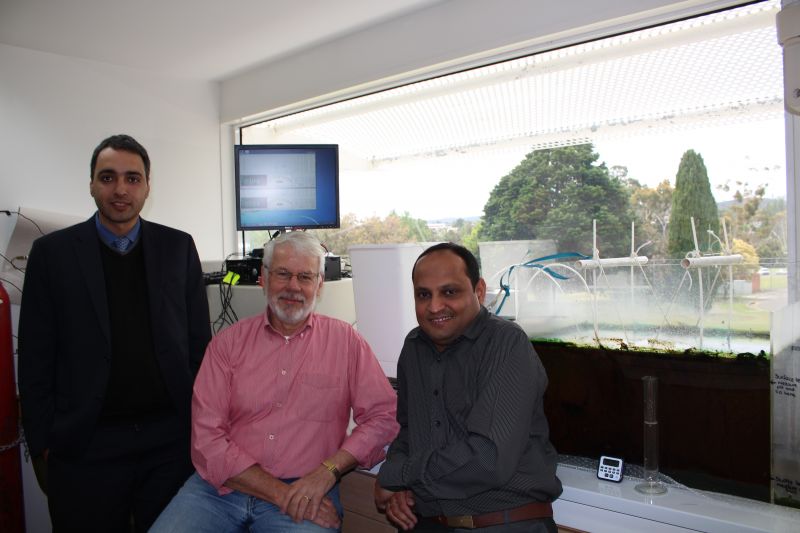An event hosted by the Australian Maritime College and the University of Tasmania last week brought together industry leaders and researchers from across Australia to investigate challenges and opportunities in new wastewater treatment technologies.
The Future Technologies in Wastewater Treatment: Industry-Research Colloquium, held on 25th November, saw University of Tasmania researchers joined by wastewater experts including Dr Dharma Dharmabalan from TasWater, Associate Professor Stuart Khan from the University of New South Wales, and Associate Professor Frederic Leusch from Griffith University.
Among the innovations showcased was a renewable technology being trialled by researchers at the University of Tasmania aimed at helping Australia’s dairy industry deal with the costly, energy-intensive process of cleaning dairy wastewater.
The Microbial Fuel Cell project is led by Dr Rouzbeh Abbassi and Dr Vikram Garaniya from the Australian Maritime College, and Dr Trevor Lewis from the School of Physical Sciences, and is funded by a Tasmanian Community Fund grant.
The researchers have installed a proof-of-concept, scale Microbial Fuel Cell, integrated with a wastewater lagoon, in a laboratory at the University. The Microbial Fuel Cell technology harnesses the bacteria found within wastewater – including dung, urine, milk residue and detergents – to generate electricity.
These bacteria can extract electrons from their food sources and feed them into an electrical circuit to generate power – which in turn is used to speed up the biological wastewater treatment process.
The energy generated by the Microbial Fuel Cell then speeds up the standard biological treatment process by powering pumps that aerate the wastewater - which accelerates the natural process of degradation. This reduces the need for external energy sources and lowers the overall costs of the operation.
An environmentally-friendly process with very low aerial and carbon footprints, the technology could bring significant cost and efficiency savings to Australia’s dairy industry, as well as helping support its green credentials. Similar biological industries could also benefit, including food processing, slaughterhouses and wineries.
They have been conducting tests since May 2016 and will continue until mid-2017, when they will publish their findings.

Dr Rouzbeh Abbassi presenting the Microbial Fuel Cell research to colloquium participants.
Published on: 28 Nov 2016

